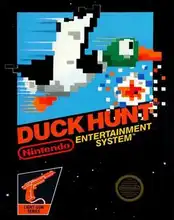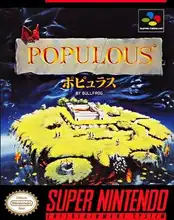Remember the days when pixelated cities thrived under your watchful eye, intricate railway networks spanned your screen, or quirky theme parks generated virtual cash? Long before hyper-realistic graphics and complex physics engines, simulation games carved out a unique niche in the gaming landscape, especially on early PCs. These weren't about twitch reflexes or headshots; they were about strategy, management, and the sheer joy of building and controlling complex systems.
For many of us who grew up in the 80s and 90s, these classic simulation titles offered something profoundly different. They tapped into a desire to understand, manage, and manipulate virtual worlds, often with interfaces that felt more like controlling a sophisticated piece of software than playing a typical video game. And guess what? They're still incredibly compelling today.
What Exactly IS a Simulation Game? (The Retro Angle)
At its core, a simulation game aims to model real-world or fictional activities and systems. Think economics, city planning, vehicle operation, or even managing a life. Unlike action or adventure games, the focus is usually on strategic decision-making, resource management, and observing the consequences of your choices within the simulated environment.
In the retro era, this meant something slightly different than today's photorealistic simulators. With technical limitations, developers couldn't rely on stunning visuals to convey complexity. Instead, they had to use clever game design, intuitive (for the time!) interfaces, and smart abstraction. They focused on capturing the essence of the system being simulated, using numbers, charts, simple graphics, and impactful feedback loops to make you feel like you were truly in control.
Early Pioneers: Where the Magic Began
The roots of simulation games go deep, arguably back to text-based adventures that simulated environments or early economic games. But the genre really exploded with the rise of home computers like the Apple II, Commodore 64, and especially the IBM PC.
Some legendary names emerged:
- SimCity (1989): Perhaps the most iconic. Will Wright's masterpiece let you build and manage a city from the ground up. It wasn't just a game; it felt like a digital sandbox where you could experiment with urban planning, zoning, infrastructure, and disaster management. Seeing your little pixel citizens thrive (or riot!) based on your decisions was incredibly rewarding.
- Railroad Tycoon (1990): Sid Meier brought the cutthroat world of 19th-century railway barons to life. It combined economic strategy, logistical planning, and historical context. Laying track, scheduling trains, and crushing competitors was a unique challenge.
- Early Flight Simulators: While often focused on realism, titles like Microsoft Flight Simulator (dating back to 1982!) offered a different kind of simulation – the hands-on experience of operating complex machinery. They were technical, demanding, and offered a sense of accomplishment from mastering controls.
- Theme Park (1994): A slightly lighter, but no less strategic, take on management. Building rides, hiring staff, setting prices, and dealing with everything from vomiting patrons to striking employees offered chaotic, addictive fun.
These games didn't just simulate; they taught players about complex systems in an engaging way.
The Magic of Abstraction: How Retro Sims Worked
One of the brilliant aspects of retro simulation games was their reliance on smart abstraction. They couldn't render every single building or person in a city with detail, but they could represent populations, traffic flow, pollution levels, and economic health through data, simple animations, and effective UI elements.
This forced developers to focus on the core mechanics and strategic depth. The game was in understanding the underlying rules and systems, not in admiring the graphical fidelity. As one competitor insight notes, good gameplay design relies on good abstraction, not just sophisticated (i.e., complex or realistic) abstraction. Retro sims were masters of this. They proved that you didn't need cutting-edge tech to create deeply engaging, complex experiences. Your imagination filled in the graphical gaps.
Beyond Realism: Why Retro Sims Still Hold Up
Why do gamers, both old and new, still seek out these classic simulation titles?
- Focus on Core Gameplay: Stripped of modern graphical bells and whistles, the mechanics had to be solid. These games are often deep, challenging, and require genuine strategic thinking.
- Strategic Depth: Managing interdependent systems provides endless replayability. There's always a better layout, a more efficient train route, or a new economic strategy to try.
- Lower Barrier to Entry (in some ways): While some sims had complex interfaces, the goal was usually clear: build, manage, grow. They weren't typically focused on fast reflexes or dominating other players in a competitive arena. It was often a more solitary, thoughtful experience.
- Less Pressure: Without leaderboards, microtransactions, or the pressure to 'pwn' opponents, you can play at your own pace, experimenting and learning without external stress.
- Cost-Effective Nostalgia: As competitor analysis points out, retro gaming is significantly cheaper. Many classic simulation games are available for very little cost, if not free as abandonware (legally murky territory, but widely available).
These games offer a different kind of satisfaction – the quiet joy of seeing your carefully planned system run smoothly, the challenge of bouncing back from disaster, and the feeling of mastering a complex, albeit pixelated, world.
Finding and Playing Classic Simulation Games Today
Feeling a pang of nostalgia? Or perhaps you're a younger gamer curious about the genre's roots? The good news is many classic simulation games are readily available:
- GOG.com (Good Old Games): This is your best bet for legally purchasing and easily running many classic PC simulation titles. They often come bundled with DOSBox or other wrappers configured to run on modern systems without hassle. Look for titles like SimCity 2000, Theme Hospital, Caesar III, Pharaoh, and many more.
- Archive.org: The Internet Archive has a vast collection of software, including many DOS-era games that can often be played directly in your browser thanks to emulation. It's a fantastic resource for exploring the history of the genre.
- DOSBox: If you find original game files (from old disks you own, for instance, or legally obtained sources), DOSBox is a superb emulator that recreates the DOS environment, allowing you to run most classic PC games. It requires a bit more technical know-how but offers great compatibility.
Diving back into these worlds is easier than you think and offers a refreshing change of pace from modern gaming trends.
The Legacy: How Retro Sims Shaped Modern Gaming
The influence of these early simulation games is undeniable. They laid the groundwork for entire subgenres, from city builders and management sims to grand strategy games and even influencing elements in RPGs and other genres that incorporate resource management or system control. They proved that complex, non-linear gameplay focused on strategy and management could be incredibly popular and enduring.
So, the next time you're looking for a gaming experience that's less about action and more about thinking, building, and managing, consider stepping back in time. The pixelated worlds of retro simulation games are waiting, ready to challenge your mind and capture your imagination all over again.
FAQ
Q: What is considered the first simulation game? A: It's debated, but early examples include text-based games like Hamurabi (1968) which simulated managing an ancient city-state, or early flight simulators in the late 70s/early 80s. SimCity (1989) is arguably the game that popularized the genre as we know it on home computers.
Q: Are retro simulation games still worth playing today? A: Absolutely! While graphics are dated, the core gameplay, strategic depth, and focus on system management hold up incredibly well. They offer a different, often more thoughtful, experience than many modern games.
Q: Where can I find classic simulation games? A: GOG.com is the best place to legally purchase many classics pre-configured for modern PCs. Archive.org offers many titles playable in your browser, and DOSBox is essential if you have original copies or legally obtained game files.
Q: Are all retro simulation games complex? A: Many are, requiring significant thought and planning. However, the complexity usually comes from managing systems rather than mastering complicated controls or interfaces (though some had those too!). Games like Theme Park were complex strategically but often had more approachable interfaces than, say, a detailed flight simulator.





